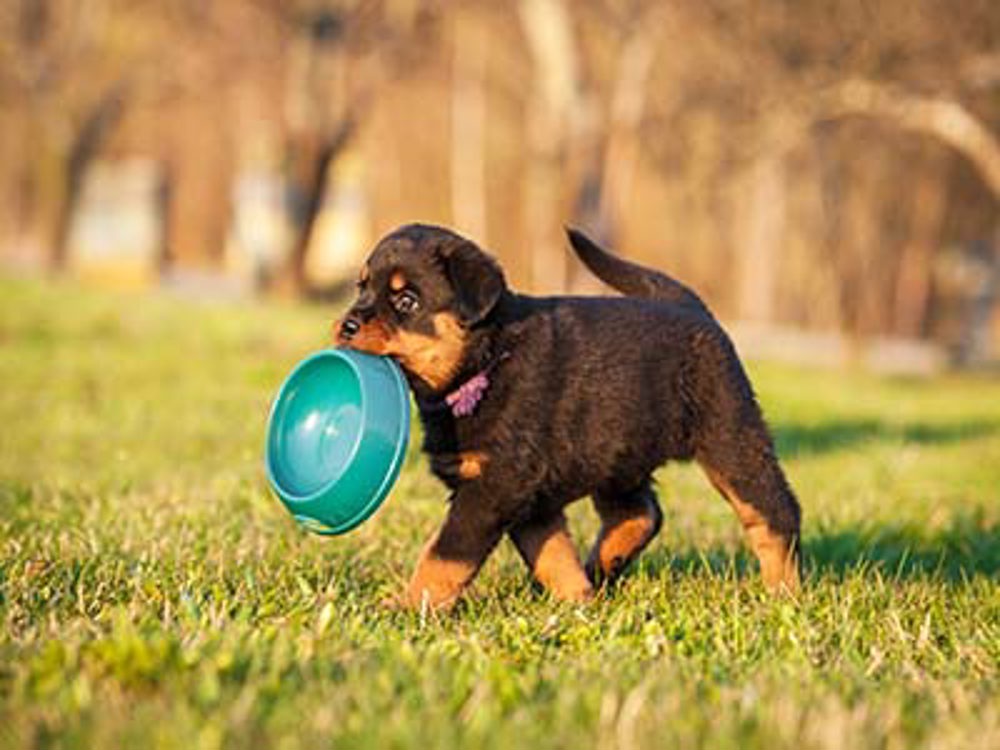
What should I feed my puppy?
- High in calories
- Rich in protein
- Packed full of essential nutrients
- Easy to chew and swallow
How much should I feed my puppy?
Younger puppies should always be fed small amounts regularly, and this decreases in frequency as they get older. If you’re not sure how often to feed your puppy then here is a rough guide:
- When you start to offer solid food or when weaning (usually at around two months old) – four to six meals a day
- From two to three months – four meals a day
- From four to six months – two to three meals a day
- Over six months – two meals a day (depending on the breed)
How can I check my puppy is gaining weight?
Getting in to good feeding habits
- Choose somewhere to put their bowl that can be easily cleaned, such as on a tiled or wipeable floor
- Give them their food in a quiet place where they won’t be interrupted or distracted
- Avoid feeding your dog immediately before or after exercise, as it can cause a life-threatening condition known as bloat
- Don’t feed your dog table scraps. Some foods may upset your dog’s stomach, while others, such as chocolate, onions and grapes, can be poisonous to them
- Cooked bones can be dangerous and can break into small parts that can cause damage in your dog’s mouth, throat or intestines, so never give them
How should I serve wet puppy food?
How should I serve dry puppy food?
Most dogs love the crunchy texture of dry kibble, but others may prefer slightly moist food. If your puppy prefers moist foods, particularly when they are younger, then you can always add a small amount of water before serving it. Be careful to avoid adding milk.
Dry food can help support dental health more than wet foods. However, whether dry or wet, it can be helpful to give them regular dental treats to keep their teeth healthy. Ideally, you should also introduce them to tooth brushing at a young age. Remember that if you are giving dental treats they need to be taken into consideration when working out the puppy’s daily calories, and the feeding guide should be reduced slightly.
Think your dog may be affected?
If you're worried about your dog's health, always contact your vet immediately!
We are not a veterinary organisation and so we can't give veterinary advice, but if you're worried about any of the issues raised in this article, please contact your local vet practice for further information
Find a vet near you
If you're looking for a vet practice near you, why not visit the Royal College of Veterinary Surgeons' Find a vet page.
